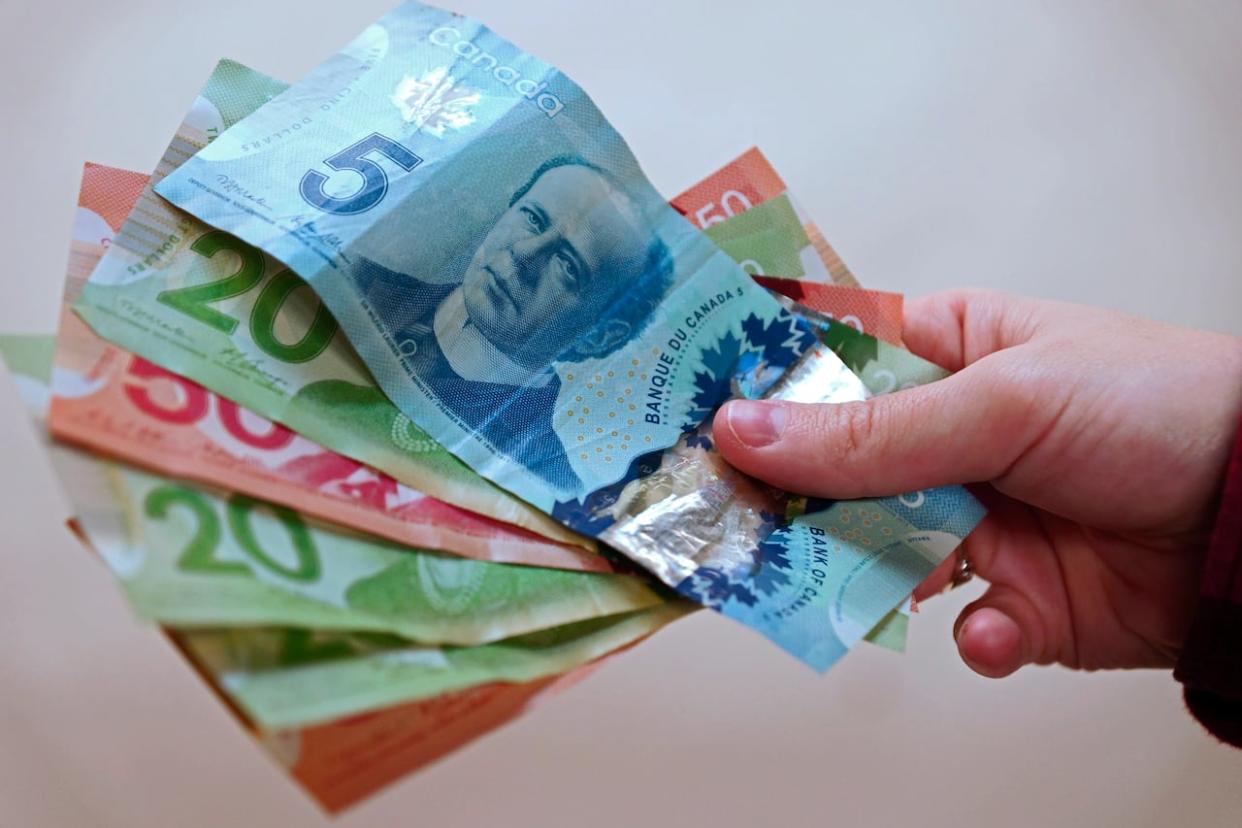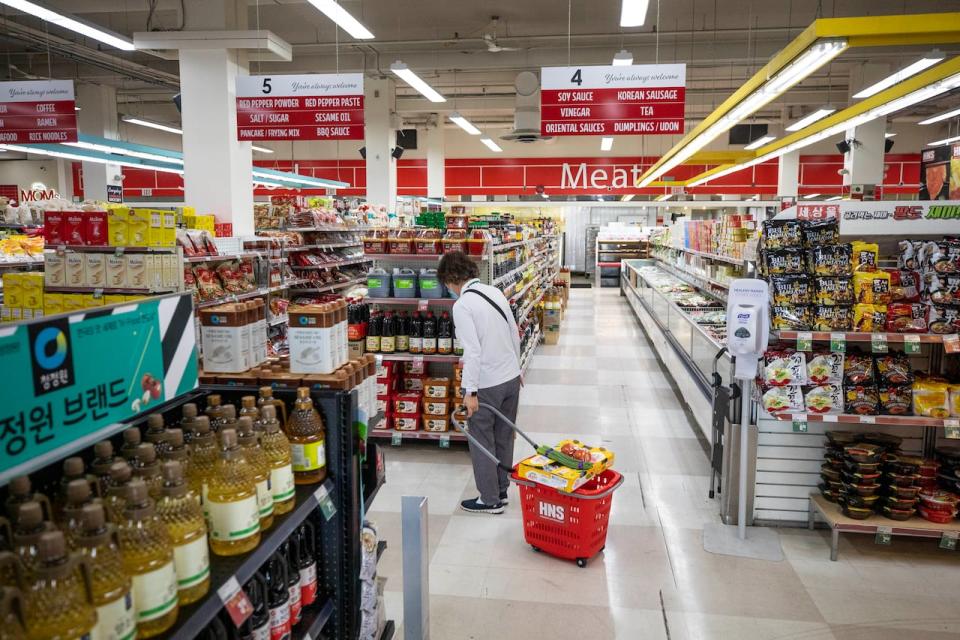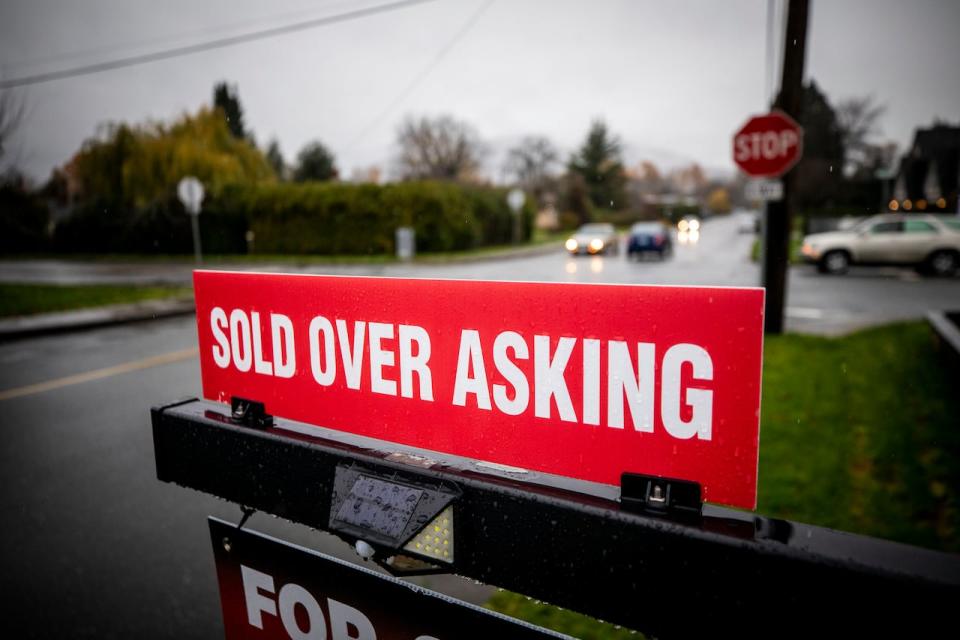Here's what will cost more for British Columbians in 2024

This year, inflation continued to climb albeit at a lower rate compared to previous years — and economic forecasts predict prices will continue to rise this 2024.
Here are some of the things British Columbians can expect to pay more for this year.
Grocery bills

A customer shops at HanNam Supermarket in Coquitlam, B.C., in July 2020. Foods that will increase in price the most in 2024 include bakery goods, meat and vegetables. (Ben Nelms/CBC)
While some food will get cheaper this year, overall grocery bills are still expected to go up.
According to Canada's Food Price Report 2024, total food prices are expected to increase by 2.5 to 4.5 per cent in 2024. This means the typical Canadian family of four can expect an increase of about $700 in their annual food bill.
Foods that will increase in price the most include bakery goods, meat and vegetables, while food prices expected to increase the least include dairy and fruit.
Utilities
FortisBC, which provides power to some parts of the province, will raise its electricity rates by 6.74 per cent starting Jan. 1, costing the average customer about an additional $11.26 per month.
B.C. Hydro has also applied to the B.C. Utilities Commission for a 2.3 per cent rate hike that would take effect on April 1, 2024 if approved.
With high levels of drought this year, B.C. Hydro has imported 10,000 gigawatt hours — about a fifth of the province's energy needs — as of December 2023, for a cost of about $450 million.
The Energy Ministry says it's the sixth year in a row that B.C. Hydro has applied for an increase below the rate of inflation.
However, British Columbians who reduce their household's energy use by 10 per cent in 2024 compared to 2023 are eligible for up to $100 in B.C. Hydro credits under the Team Power Smart conservation challenge.
Homes and rent

A for-sale sign is pictured outside of a home in Chilliwack, B.C., in November 2021. Homes in Greater Vancouver are expected to rise at a lower rate compared to the national average, although they remain the most expensive in Canada. (Ben Nelms/CBC)
The B.C. government announced in September it would cap the allowable rent increase at 3.5 per cent for 2024.
The province put a freeze on rent increases at the beginning of the COVID-19 pandemic. It was lifted at the end of 2021, with landlords allowed to raise rents by as much as 1.5 per cent in 2022 and two per cent in 2023.
Meanwhile, home prices across Canada are expected to rise by 5.5 per cent by the end of 2024, according to a market survey forecast by Royal LePage.
In Greater Vancouver, prices are expected to rise by lower than the national average — at three per cent — although the survey has found that home prices in the area are forecasted to remain the most expensive in Canada.
Ferry fares
Starting April 1, 2024, B.C. Ferries fare prices will increase by an average of 3.2 per cent each year for the next four years.
The Ministry of Transportation and Infrastructure announced in October provincial funding pledged earlier in the year minimized the fare increase, which would have been approximately 9.2 per cent per year without the funding.


